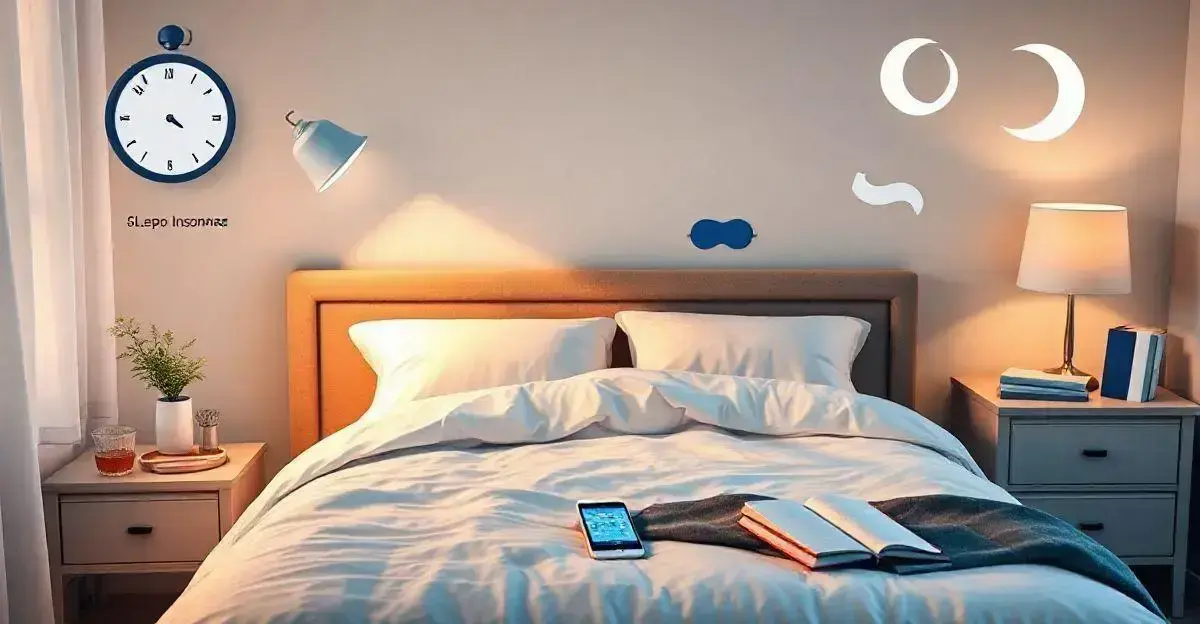In today’s fast-paced world, getting a restful Night’s Sleep is more important than ever. The constant pressure of work, technology, and daily stress can interfere with our ability to unwind and truly relax at night.
Many people experience difficulties falling or staying asleep, which affects their mood, energy, and health. Without a consistent Night’s Sleep, fatigue builds up, and daily performance suffers both mentally and physically.
If you’re ready to improve your Night’s Sleep and feel more refreshed each day, keep reading. Discover practical tips and routines that can transform your sleep quality and overall well-being.
Understanding Sleep Cycles
Understanding how sleep cycles work is key to improving your Night’s Sleep. Sleep is divided into different stages—light sleep, deep sleep, and REM sleep—each playing a vital role in rest and recovery. Completing full cycles helps the body and mind recharge effectively.
Interrupting these cycles can leave you feeling tired, even after several hours in bed. A consistent sleep schedule allows your body to move naturally through each stage, improving the quality of your Night’s Sleep and supporting better mental and physical health.
Learning how to align your bedtime with natural sleep rhythms can make a big difference. If you’re looking to get the most out of your Night’s Sleep, understanding these cycles is the first step toward waking up refreshed and energized.
Top Tips for Better Sleep

To achieve better sleep, there are several important tips to consider. First, establish a consistent sleep schedule by going to bed and waking up at the same time each day, even on weekends. This helps regulate your body’s internal clock and can improve the quality of your sleep.
Another tip is to create a relaxing bedtime routine. Engaging in calming activities before bed, such as reading a book or taking a warm bath, can signal your body that it’s time to wind down. Avoid screens (like phones and tablets) at least an hour before bedtime, as the blue light emitted can interfere with your ability to fall asleep.
It’s also essential to create a comfortable sleep environment. Ensure your bedroom is cool, dark, and quiet and consider using comfortable bedding to enhance your sleep quality. Reducing noise with earplugs or a white noise machine can also be helpful.
Lastly, be mindful of your diet and exercise. Limit caffeine and heavy meals close to bedtime. Engaging in regular physical activity during the day can help you fall asleep faster and enjoy deeper sleep. By following these tips, you can significantly improve your sleep quality and wake up feeling refreshed.
The Importance of Sleep Environment
The importance of a sleep environment cannot be overstated. A comfortable space is crucial for achieving quality rest every night. The ideal bedroom should be dark, quiet, and cool. Darkness promotes the production of melatonin, a hormone that aids sleep. Using blackout curtains can help block external light.
Keeping the room at a cooler temperature—around 18-22 degrees Celsius—is often recommended, as this temperature range is optimal for sleep. If it’s too warm or too cold, it can disrupt your sleep cycle.
Noise can also be a significant factor, so it’s important to minimise distractions. Consider using earplugs or a white noise machine to create a soothing sound that lulls you to sleep. Adding calming elements, such as soft bedding and comfortable pillows, can make your sleep area more inviting.
Finally, ensure that your mattress is comfortable and supportive. If you wake up with aches and pains, it may be time to reconsider your mattress choice. By focusing on your sleep environment, you can create a space that promotes better and longer sleep.
How Diet Affects Sleep Quality

The food and drinks you consume have a direct impact on the quality of your Night’s Sleep. Items rich in tryptophan—such as turkey, nuts, and dairy—support melatonin production, helping your body regulate its sleep-wake cycle. Including these in your evening meals can make it easier to fall asleep naturally.
Carbohydrates also aid the process by boosting tryptophan availability in the brain. Whole grains, in particular, are a good option for dinner. To improve your Night’s Sleep, it’s best to avoid heavy, fatty, or spicy foods late in the day, as they can lead to discomfort and make falling asleep harder.
Limiting caffeine and alcohol is equally important. While caffeine can delay sleep, alcohol may interrupt it during the night. Stay hydrated throughout the day, but reduce fluid intake before bedtime to avoid waking up. By being mindful of your diet, you can support a healthier, more restful Night’s Sleep.
Relaxation Techniques for Sleep
Relaxation techniques are vital for improving sleep quality. They help calm the mind and prepare the body for rest. One effective method is deep breathing exercises. Taking slow, deep breaths can reduce stress and help lower heart rates.
Another technique involves progressive muscle relaxation. This means tensing and then relaxing each muscle group, which can ease tension throughout the body. Start from your toes and work your way up to your head.
Meditation and mindfulness practices can also contribute significantly to relaxation. Spending just a few minutes each day focusing on your breath or a calming mantra can create mental clarity and peace. Guided imagery is another useful method, where you envision a peaceful scene, helping to distract the mind from stressful thoughts.
Lastly, consider incorporating gentle yoga or stretching into your evening routine. This can release physical tension and calm your mind, making it easier to drift off to sleep. Overall, finding the right relaxation technique can make a big difference in your ability to fall asleep and stay asleep.
Sleep Disorders and Solutions

Sleep disorders can significantly impact an individual’s quality of life. Here are some common types:
Insomnia: One of the most frequent issues, where individuals find it hard to fall asleep or stay asleep. Effects: Can lead to daytime fatigue and irritability. Recommendations: Establishing a relaxing bedtime routine. Techniques such as deep breathing and gentle stretching.
Sleep Apnea: Characterized by interrupted breathing during sleep, often causing loud snoring. Effects: Can lead to poor sleep quality. Treatment options: Using a CPAP machine, lifestyle changes such as losing weight.
Restless Legs Syndrome: Causes uncomfortable sensations in the legs, especially in the evening. Effects: Can disrupt sleep and make it hard to relax at night. Recommendations: Stretching or exercising during the day.
Narcolepsy: A neurological disorder impacting the brain’s ability to regulate sleep-wake cycles. Effects: People may experience sudden sleep attacks during the day. Management: Medication, lifestyle adjustments.
Creating a Sleep Routine
Creating a consistent bedtime routine is a powerful way to improve the quality of your Night’s Sleep. Going to bed and waking up at the same time each day—even on weekends—helps regulate your internal clock. This rhythm tells your body when it’s time to rest, making it easier to fall asleep and wake up feeling refreshed.
Incorporating relaxing activities into your nightly routine can also support a better Night’s Sleep. Consider winding down with a warm bath, reading, or gentle meditation. Avoid stimulants like caffeine and limit screen time, as blue light from devices can disrupt melatonin production and delay sleep.
Your sleep environment plays a key role in achieving a restful Night’s Sleep. Keep your bedroom cool, dark, and quiet, and invest in comfortable bedding. These small adjustments create a calming atmosphere that supports deeper, more restorative rest.
FAQ – Frequently Asked Questions About Sleep
What are the common sleep disorders?
Common sleep disorders include insomnia, sleep apnea, restless legs syndrome, and narcolepsy, all of which can impact sleep quality.
How can I create a sleep routine?
Establish a consistent bedtime and wake-up time, engage in relaxing pre-sleep activities, and limit screen time before bed.
What role does diet play in sleep quality?
A balanced diet rich in tryptophan and low in caffeine can promote better sleep; avoid heavy meals close to bedtime.
Why is my sleep environment important?
A dark, cool, and quiet bedroom enhances sleep quality and helps create a comfortable space for rest.
What relaxation techniques can help improve sleep?
Deep breathing exercises, progressive muscle relaxation, and meditation are effective techniques for promoting better sleep.
How can I improve my sleep naturally?
Engage in regular physical activity, maintain a healthy diet, and establish a calming bedtime routine to improve sleep naturally.
Check out our article on Health Tracking Apps to explore the best apps for monitoring your health and staying on top of your fitness goals.
